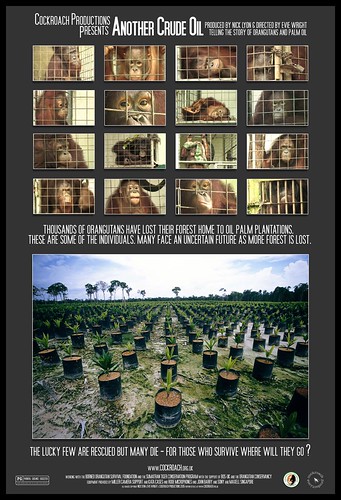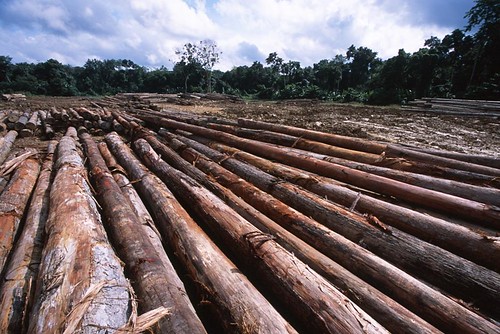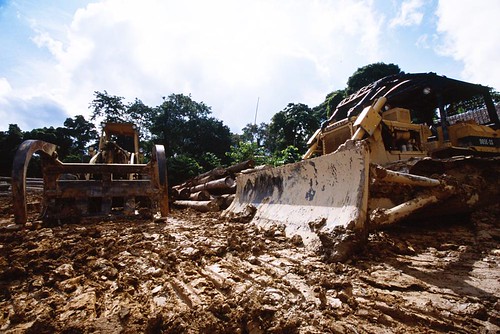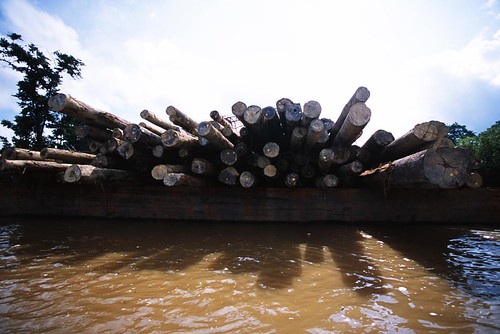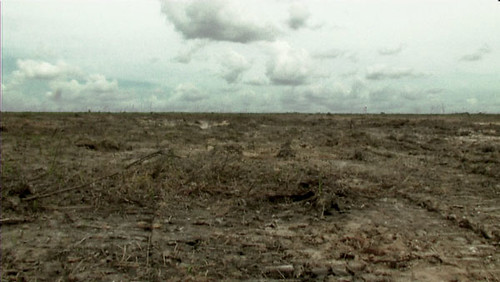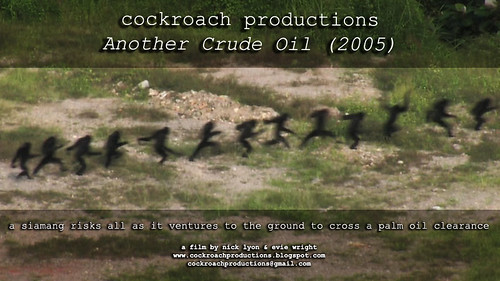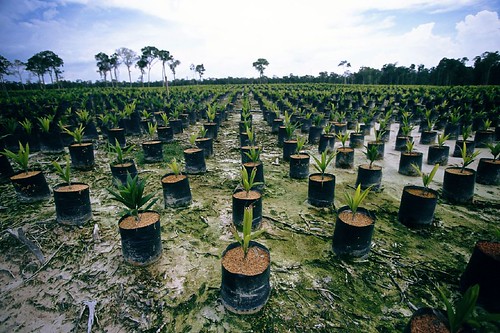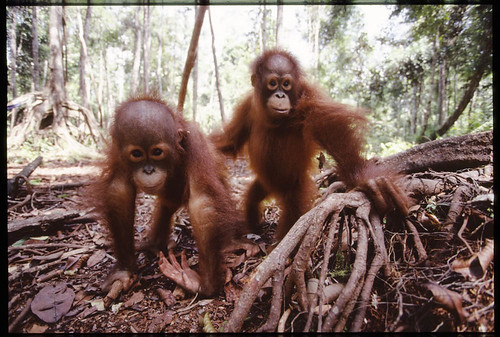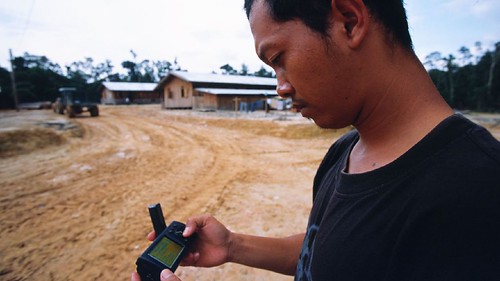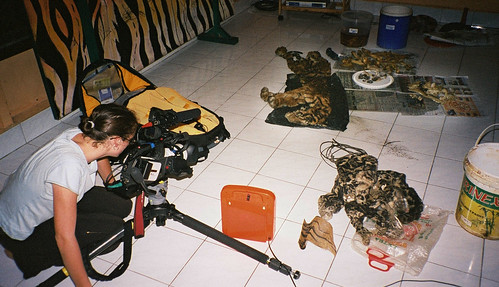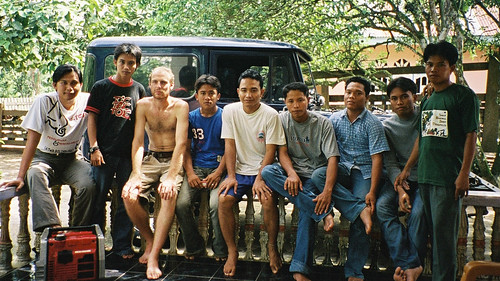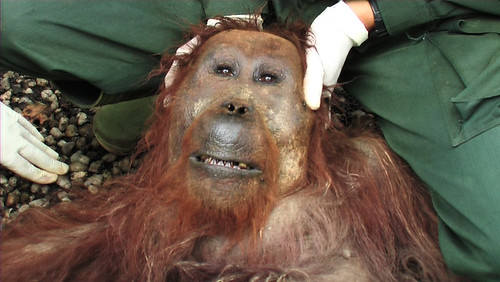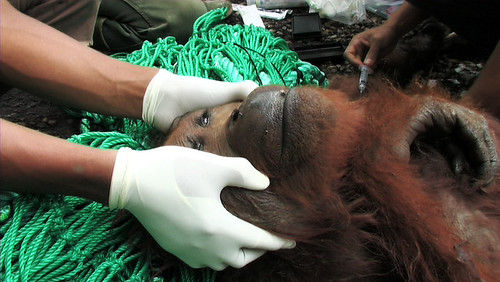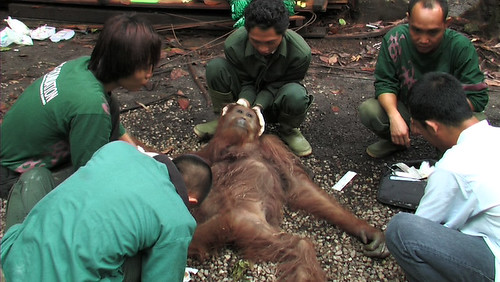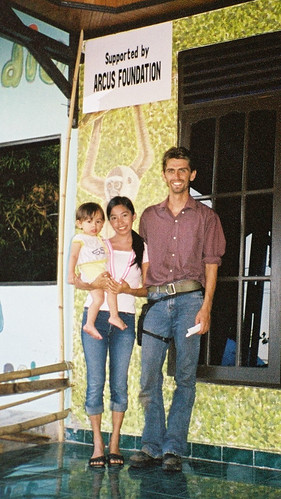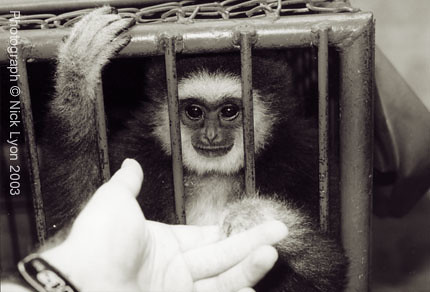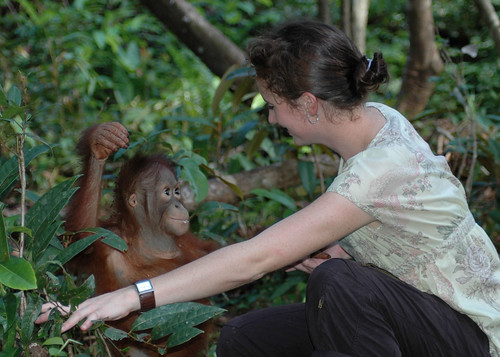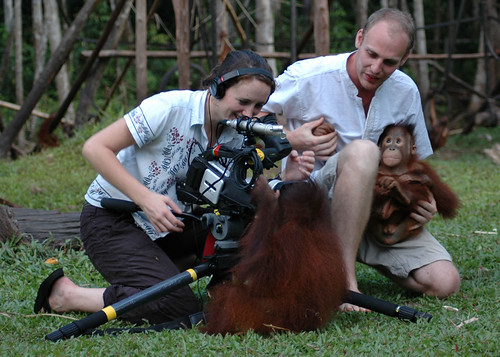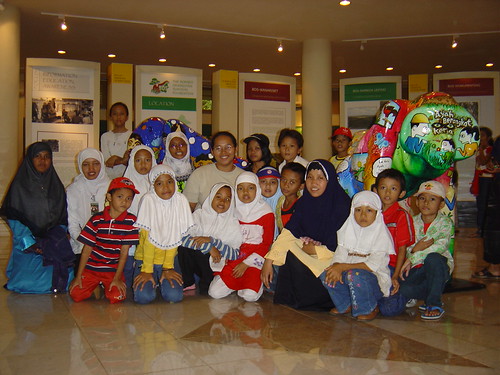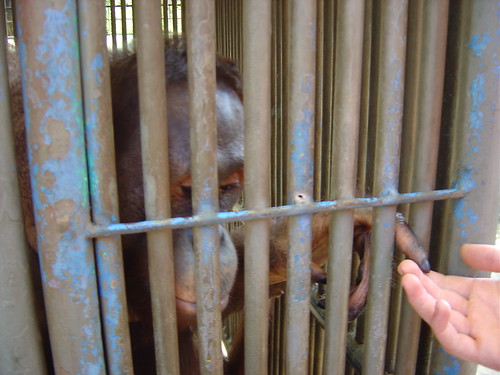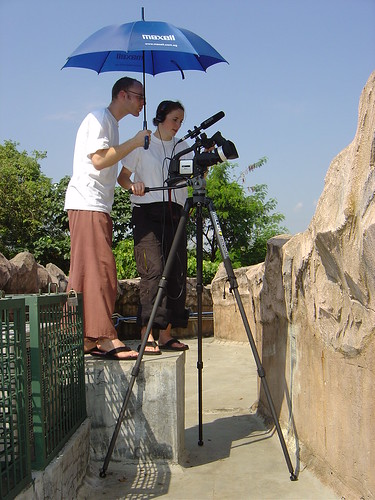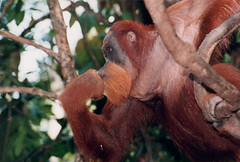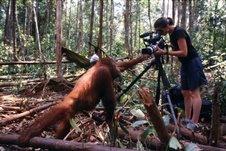PALM OIL SETS CO2 TIME-BOMB TICKING
___________________________
We have seen in the past weeks how the polar bears are unable to reach their hunting grounds with the freeze being unseasonably late. It appears that the fate of the orangutan and polar bear – despite their vastly different existences – might run in parallel. Loss of orangutan habitat is driving the loss of polar ice. In a year of terrible floods we can recognize the human risk implied by global warming.
Over the next two weeks Montreal hosts the United Nations climate conference. One key issue that will be discussed is whether the Kyoto protocol should be revised to afford incentives for the protection of existing forest. Currently Kyoto only makes provisions for reforestation and aforestation. Whilst fossil fuels are seen as the driving force in Global Climate Change and the principle source of Greenhouse Gas emissions, there is another vast carbon source on the verge of being released into the atmosphere, with none of the benefits of fossil fuel combustion. 30% of terrestrial carbon reserves are locked up in peatlands. Indonesia holds 50% of the earth's peatswamp forest.
This means Indonesia's peat swamps are of global importance.These forests not only hold thick peat up to 20 metres in depth, but are one of the last refuges for the endangered Bornean orangutan, with only 50,000 individuals remaining, and critically endangered Sumatran orangutan with only 7,300 individuals left. Sumatran tigers, rhinos, and elephants are also at risk.
Destruction of lowland forest for conversion to oil palm plantations has been so rapid that developers are now turning their attention to peat swamp forests.These are an important component of the ecosystem dueto their function in absorbing excess water during thewet season, and releasing this stored water during the dry season, reducing the likelihood of floods and forest fires respectively. It is notoriously difficult to cultivate oil palms on peatland greater than 1 metre thick, and the costs of establishing a plantation on this soil type tend to be 40 per cent higher than on dry land. Although this land is not suitable for oil palm cultivation, it still holds valuable hardwood timber. The companies seek legal permits for plantation development in order to benefit from quick profit through unsustainable forest clearance. Past evidence shows that palm oil may not be developed after clearances – because of fire risk and unsuitable land. The peat is too soft to use heavy machinery to extract logs – one of the reasons that the land is unsuitablefor palm oil development – so logging canals are duginto the peat to extract the logs. The logging canals drain the peat domes and what is left is a tinder-box time-bomb of carbon-rich bio-matter.
The vast quantities of CO2 released in the 1997-98 forest fires in Indonesia will be dwarfed if palm oil moves into these vast expanses of peat. But that is what is set to happen. Proposals are being approvedright now. Indonesia is struggling to improve its economy and investment in palm oil is attractive, but the industry is not sustainable under current patternsof expansion. Millions of hectares of degraded and cleared land stand unused as more forest is cleared for quick timber profit.
NGOs are putting pressure on the palm oil industry to recognize the short-term perspective being employed. Last week in Singapore the palm oil industry's self-regulation initiative – the Roundtable forSustainable Palm Oil (RSPO) - approved a set of principles and criteria for the sustainable production of palm oil. This is a positive first step, but NGOs are concerned that the 2 year process of development before implementation of these guidelines might not be quick enough to save the peat swamps and their diverse inhabitants. The clock is ticking on the CO2 time-bomb…
___________________________
Cockroach Productions has broadcast quality motion footage and high impact still photographs illustrating the palm oil story, the little known world of peat swamp forests and the plight of the orangutans. We arealso available for interview, having recently returned from several months on the ground in Indonesia following the story. ___________________________
Contact: Nick Lyon or Evie Wright @ CockroachProductions
Tel: 01823 451 790Mobile: 07816 755 128
Email: cockroachproductions@gmail.com
Web: www.cockroach.org.uk
For more images relating to the story see:
PRESS RELEASE – COCKROACH PRODUCTIONS Friday 2nd December 2005
